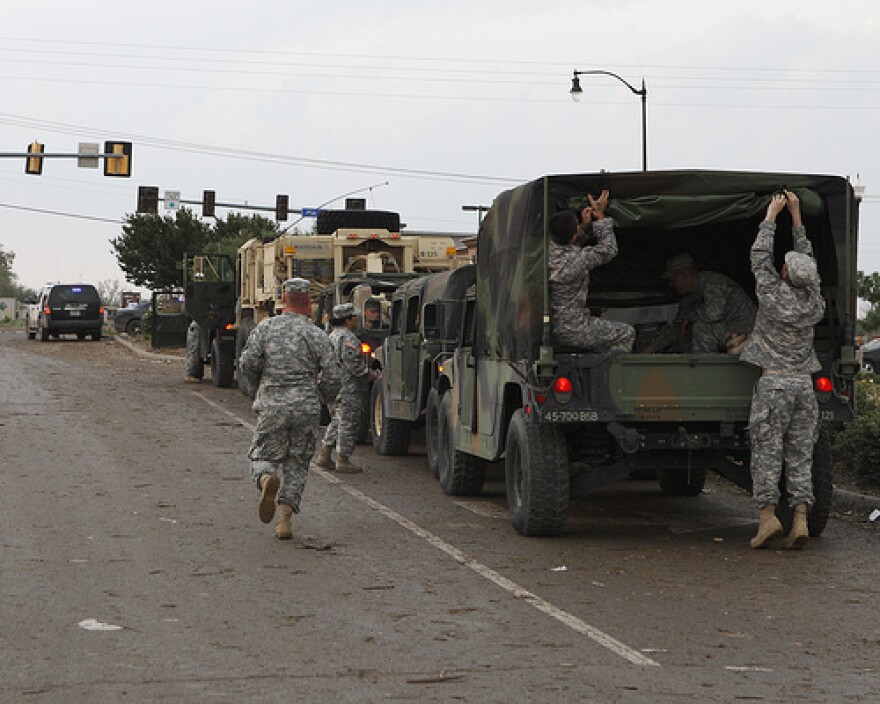In the hours after the tornado tore through Moore back in May, nearly 400 National Guardsmen went to the scene to search for survivors, clear roads and watch for looters. One of those soldiers was Major Dave Mackey.
“I had an aunt and uncle that they lost everything. As a matter of fact, I didn't even go over there for many days just 'cause I didn't know how it would make me feel,” he said.
Mackey remembers the May 20 tornado well. And it’s not just because he was there with the Oklahoma National Guard helping in the immediate aftermath of the devastation. It’s because he, like so many other Guardsmen, had to walk through destroyed areas that he knew as a child.
“I had been there when I was a kid and growing up and stuff. So I kind of stayed away from that area.” Mackey said.

He’s a big guy with some serious muscles, but when it came to dealing with such a devastating experience, Mackey’s might couldn’t totally inoculate him from the emotional impact of what he witnessed. He did his best, though.
“You stick to mission,” he said. “You know what your job is. You do get emotional when you know that there's kids that have lost their lives, but we have a job to do so you focus on that job.”
Major General Myles Deering is the head of the Oklahoma National Guard. He wanted to document this specific operation and the response to the storm for future Guardsmen.
“What I want to do is capture the times,” Deering said. “I think we all have responsibility to capture history because that's only for the future generations to learn from those lessons so they don't have to learn them again,” he said.
Recently, the National Guard released a documentary called "The Day of Days," showing just how much work went into the recovery effort.
Colonel Van Kinchen is one of the 750 soldiers and airmen who responded during the initial two weeks after the storm. He says in the film that adjusting to what is needed is critical during disasters.
“As power began to be restored, as services began to come online, we moved from a fixed security to more of a roving patrol, community presence controls is what we call them, basically just providing a uniformed presence in the affected areas to discourage looters, onlookers and do what we could to help the civilian population,” Kinchen said.
This transition to general patrol was crucial. Major Mackey, the soldier whose aunt and uncle were affected, remembers what it was like trying to organize the masses that crowded the streets in the hours following the storm.
“They're all pouring back in because some of them left, some of them were just getting home or on their way to their homes,” said Mackey.
“They're all trying to get in, and we're trying to help guide some of those people around all the debris, the power lines, and just trying to find a route from Point A to Point B,” he said.
Adjutant General Deering was pleased with the efficiency of the operation. But Deering says the credit really belongs to first responders and the office of emergency management.
“We come in and kind of fill in between the gaps and the seams,” Deering said. We provide those capabilities that local law enforcement and local first responders don't have the capability or don't have enough of that capability to fill the need.”
And the Guardsmen were able to complement other organizations so well because they also have full-time careers. So when power lines were down or generators were out, chances were, there was an engineer nearby to assess the situation.
_______________________
Ahead of the Storm: The Oklahoma Tornado Project stories are produced by KGOU News, with funding from the Corporation for Public Broadcasting. Reports may be used in any media with appropriate credit given to KGOU and CPB. For details, refer to our Terms of Use.







